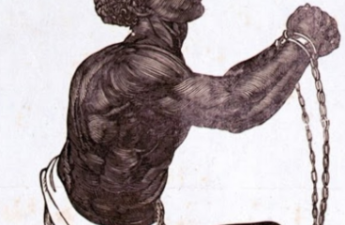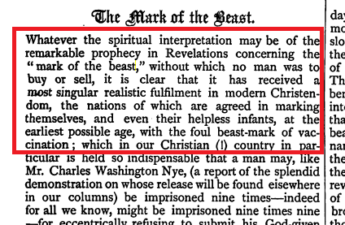
by Stephen Halbrook
See also:
Health: It’s About Nutrients — NOT Vaccine Antibodies
Demolishing the Antibody Narrative: Measles Immunity can be Attained with ZERO Antibodies
Demolishing the Antibody Narrative: HIV Antibodies DO NOT Combat HIV
Demolishing the Antibody Narrative: Study of VSV Virus CHALLENGES Role of Antibodies
After all that has already been said challenging — if not outright demolishing — the idea that antibodies are the be-all, end-all for combating disease, we turn to the view that antibodies can, at least regarding some viruses, increase disease severity.
They call it “antibody-dependent enhancement” (ADE).
Again, we see no consistency in the pro-vaccine antibody narrative. In some cases antibodies protect; in others, they are useless to protect; in this case, they attack!
But since ADE doesn’t occur with “every vaccine,” perhaps the idea of ADE is actually made-up by the elites at the top to conceal the fact that vaccination is inherently poisonous (all vaccines are dangerous). The idea being to convey this: “No, the problem is not vaccination per se. It is just how antibodies may sometimes react with certain viruses in certain contexts. But trust us, we’ll figure a way around this and you’ll be safe in the future.”
The idea of ADE provided cover for a massive number of children killed by the dengue vaccine. In 2019, NPR reports,
But this vaccine has a dark — and deadly — history. One that has led to criminal charges in the Philippines, sparked national panic and fueled a massive measles outbreak that has already killed more than 355 people.
Michaeleen Doucleff, Rush To Produce, Sell Vaccine Put Kids In Philippines At Risk, NPR (May 3, 2019). Retrieved January 26, 2024, from https://www.npr.org/sections/goatsandsoda/2019/05/03/719037789/botched-vaccine-launch-has-deadly-repercussions
More from this article later.
Whether or not ADE provides cover for vaccines being inherently dangerous (while, interestingly, affirming that they can at least in some cases be dangerous), it nevertheless poses a problem of consistency for the vaccine-induced antibody narrative. Since ADE is affirmed by the pro-vaccine establishment (although rarely mentioned to the general public), whether or not it is true, those who support vaccination must also, to be consistent, accept the ADE narrative — but by doing so, must also re-evaluate whether vaccine-induced antibodies actually prevent disease.
Let’s dig deeper into ADE.
First, we have this from Dr. Michael Palmer (who, while he opposes vaccination in some cases, is not opposed to all vaccines; nevertheless, we appreciate much of his work):
While all viruses will induce specific antibodies, some viruses will not be effectively neutralized by them. This can occur because certain cells of the immune system are supposed to take up antibody-antigen complexes and destroy them. If a virus particle to which antibodies have bound is taken up by such a cell, but manages to evade destruction, then it may instead start to multiply within that immune cell. Overall, instead of protecting our cells from the virus, the antibodies will then promote the replication of the virus and worsen the disease. This effect is called antibody-dependent enhancement (ADE). Clinically, ADE can cause a hyperinflammatory response (a “cytokine storm”) that will amplify the damage to our lungs, liver and other organs of our body.
Dengue fever is a natural virus infection that is often complicated by antibody-dependent enhancement; this will cause recurrent infections to be more severe than primary ones. ADE has also been observed after vaccination against dengue virus, respiratory syncytial virus (RSV), and measles. Coronaviruses, too, are prone to vaccine-elicited ADE; it has been described with the original SARS virus (SARS-CoV-1), the MERS virus, and feline coronavirus. All of these are closely related to SARS-CoV-2. SARS-CoV-1 in particular is highly homologous with SARS-2 CoV-2, with 82% sequence identity at the genome level, and the viral receptor on host cells for both is ACE2. The risk of antibody-dependent enhancement in connection with COVID-19 infection and vaccination was explicitly recognized in the literature before the gene-based COVID-19 vaccines were rolled out, yet it was not rigorously evaluated during the very short clinical trials
Michael Palmer, ed., mRNA Vaccine Toxicity (Doctors for COVID Ethics, 2023), 26, 27.
From Dr. Paul Offit, Director of the Vaccine Education Center at Children’s Hospital of Philadelphia and a major face of the pro-vaccine industry:
So you have the neutralizing antibodies and you have the binding antibodies. You want to make sure that the quantity of the neutralizing antibodies that you have, and the persistence of those antibodies, is much greater than the binding antibodies. Because the binding antibodies could be dangerous and cause something called antibody-dependent enhancement.
ZDoggMD, The Reality about Coronavirus Vaccine (W/Dr. Paul Offit), April 5, 2020, timestamp 11:53, https://zdoggmd.com/paul-offit-2/. Cited in
Children’s Health Defense,
The Dengue Vaccine: A Cautionary Tale (August 25, 2020). Retrieved January 26, 2024, from
https://childrenshealthdefense.org/news/the-dengue-vaccine-a-cautionary-tale/
Per Dr. Palmer’s association of Dengue and COVID vaccination with ADE, here are quotes from two pro-vaccine networks.
NPR says this about Dengue vaccination:
Typically, a vaccine works by triggering the immune system to make antibodies against the virus. These antibodies then fight off the virus during an infection.
But dengue is a tricky virus. Dengue antibodies don’t always protect a person. In fact, these antibodies can make an infection worse. The dengue virus actually uses the antibodies to help it spread through the body. So a second infection with dengue — when your blood already has antibodies in it — can actually be worse than the first; a person is at a higher risk of severe complications like plasma leakage syndrome.
Michaeleen Doucleff, Rush To Produce, Sell Vaccine Put Kids In Philippines At Risk, NPR (May 3, 2019). Retrieved January 25, 2024, from https://www.npr.org/sections/goatsandsoda/2019/05/03/719037789/botched-vaccine-launch-has-deadly-repercussions
In 2009, Medscape said this about COVID vaccines and ADE:
The greatest fear among vaccinologists is the creation of a vaccine that is not only ineffective, but which exacerbates disease. Unfortunately, CoV vaccines have a history of enhancing disease, notably with feline CoVs. While several mechanisms may exist, the best understood is antibody-mediated entry of virus into cells via immunoglobulin Fc receptors.
Rachel L. Roper, Kristina E. Rehm, Medscape, SARS vaccines: where are we?, Medscape, Expert Rev Vaccines. 2009;8(7):887-898. Retrieved January 25, 2024, from https://www.medscape.com/viewarticle/706717_8?form=fpf
If you find this site helpful, please consider supporting our work.


